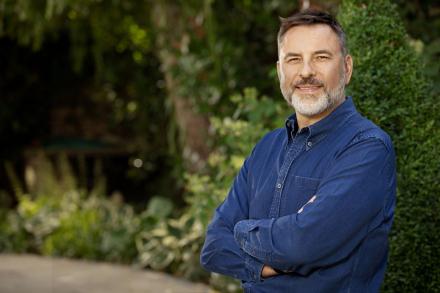
David Walliams is the subject of Who Do You Think You Are? which airs on BBC One on Monday, October 19.
Here he talks about his joyful and tragic discoveries.
Picture: BBC/Wall to Wall Media Ltd/Stephen Perry
What made you want to take this journey into your family’s history?
I realised how little I knew, and with all my grandparents having passed away over a decade ago, my dad has passed away as well - so I didn’t have many people I could ask about the past. Apart from a few black and white photographs, I didn’t know that much. I knew unless I took part in the programme I would never find out, because there’s a lot of detective work and it’s quite complicated, and you have to travel all over the country or even the world gathering information from here, there and everywhere - so the show seemed like the perfect chance to do that. And also, I’m just more interested in stories than ever before. I love writing stories but in this case the story was already written, I just had to find it out.
Did you have any hopes about what kind of ancestors would be uncovered?
I hoped that I’d have some exciting stories in my family, because I thought I was going to make a really boring hour of television. I was glad that I didn’t know too much, so it was a proper journey of discovery for me. The two stories are very emotional - a great-grandfather was in WW1, and that was an incredibly sad story. Visiting the locations of the battlefields of WW1 was not something I would normally have done, and I found that very emotional. It did make me stop and think that when and where you were born is a complete accident. If had been born over a hundred years ago I could have ended up in a similar situation to my great grandfather. And so you start to think, “What would I do in that situation? How would I react? Would I be capable of heroism?” It’s interesting to put yourself in someone’s shoes who you’re genetically close to, but happened to be born in another age.
Was there anything you were particularly worried about uncovering when you agreed to take part in the show?
No because we went a long way back, looking at events in the late 19th century, early 20th century, so long before anyone in my family alive now was born.
Could you briefly summarise the two family stories that we follow in your episode.
The first story we follow is of my father’s grandfather, who fought in WW1. He was very badly shell-shocked and spent the rest of his life in a Mental Health Hospital. He lived for a long time, so he was in a Mental Health Hospital for over 40 years, up until the 1960s.
The second story is about my grandmother on my mother’s side, and it’s about her grandfather - who was a colourful figure. He was blind and had many jobs, and he ended up being a showman - which means running a fair. My grandmother had never told me about him, because she was embarrassed that she thought her upbringings were humble. These are not my feelings about this, those were my grandmother’s. So, she never spoke about him.
They were both very different stories, but their characters really shone through and I found both stories really engrossing.
Was filming an emotional experience for you? And how do you feel about the process several months on now you have had time to reflect?
There’s a bit of a mystery to it, because the producers and directors don’t want to tell you anything before you’re there. They want you to react in the moment. You often don’t know where you’re going, who you’re meeting, what you’re going to uncover -so they get your real reactions.
It was emotional, because those lives are so different from my own, and so difficult too. Neither life was enviable. Obviously, ending up in a Mental Health Hospital after being shell-shocked is hellish, and as for the showman, being blind, especially then, must have been hard.
Can you tell us a bit more about if/how your grandfather’s war experience impacted you personally?
It’s just a very sad story. Although I think he was very well cared for later in life, it’s not something you would wish on anybody. I’m sure that there were many other men who had the same experience. Those signing up to fight in France in 1914 did not know what hell was awaiting them there. Even if you were lucky to get out alive, it was very likely that you’d be affected for the rest of your life by the trauma of being in these terrible battles. He lived with it for the rest of his life. I had a few postcards that he painted, whilst he was in the Mental Health Hospital and I always treasured those, because they were so delicate and beautiful. It was just a very moving human story.



